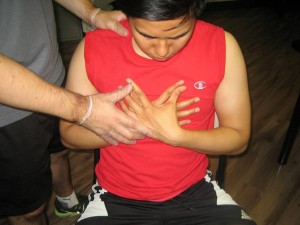When the coronary arteries become clogged with plaque or atheroma, the person is often diagnosed as having coronary heart disease. This buildup in the arteries starts at a young age and continues to add up until the arteries becoming very narrow. When this happens, the blood has a hard time of making it to the heart, which can lead to chest pain otherwise known as angina. This can also cause a heart attack of the artery is completely blocked.
Your risk score for heart and stroke

In order to determine your risk score, the doctor will take into consideration your risk for having a heart attack and stroke, rather than each score individually, which was what they once did. The risk score is going to help to determine how you should change your lifestyle and diet in order to eliminate the risks that may be present.
Risk factors for heart disease that you control
There are some risk factors that you have complete control over when it comes to heart disease. These risk factors are something that you can change now in order to lower the chances of having heart disease:
- Smoking should be stopped
- Get high blood pressure under control
- Lower your total cholesterol
- Be active in working with diabetes
- Be physically active instead of inactive
- Lose weight if you need to
- Dealing with depression, social isolation, and other social issues can help
There are also risk factors that you have no control over, such as your age, genetics, or being a male.
Aspects to Remember
Keep these aspects in mind when dealing with heart disease:
- No single cause has been linked to heart disease, instead, there are several risks that combine together to cause this.
- Modify your life to reduce your risk of heart disease
- Take medications to help with prevention that are given to you by your doctor.
Schedule a Yearly Checkup
The health of your heart should always be one of your main concerns. When it is your birthday, plan an examination to have your cholesterol, glucose levels, and blood pressure tested and ask your GP to guide you to achieve a healthy weight. Implement your GP’s suggestions, together with taking your medication as advised.
Get Physical
Jog or walk in place for at least 20 minutes every day. You can then increase your movements by 5 minutes every week so you can keep fit. If workouts and diet do not assist you in reducing your weight, speak to you GP to get some advice.
Related Video
FACT CHECK
https://www.webmd.com/heart-disease/default.htm
https://www.medicalnewstoday.com/articles/237191.php
https://www.mayoclinic.org/diseases-conditions/heart-disease/symptoms-causes/syc-20353118

